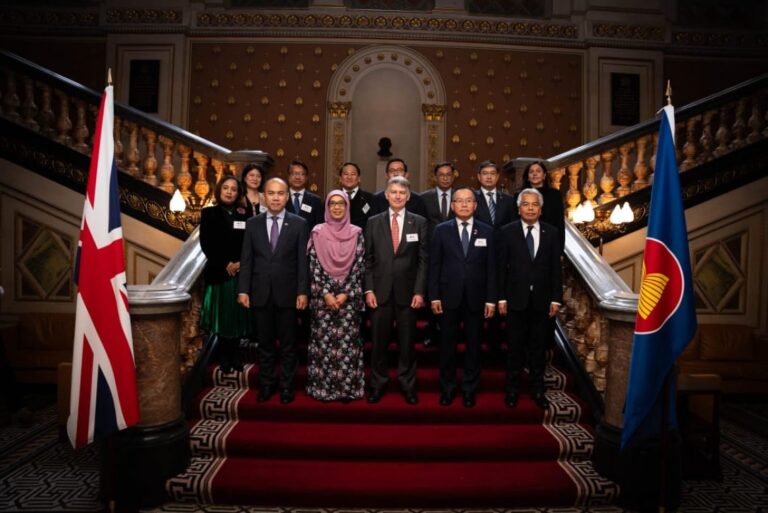On March 6, 2025, the United Kingdom, in collaboration with the Centre for Strategy and Evaluation Services (CSES), initiated a transformative research project titled “Regulatory Reform for Businesses and Consumers in ASEAN Countries – Understanding Potential Impacts on Gender Equality and Micro, Small & Medium Enterprises.”
This comprehensive study, launched under the Regulatory Reform pillar of the ASEAN-UK Economic Integration Programme, aims to delve deeply into the myriad challenges faced by businesses across the ASEAN region while identifying actionable opportunities for fostering inclusive policymaking. It particularly seeks to illuminate how regulatory reforms can effectively bolster the position of women entrepreneurs and support the growth of micro, small, and medium enterprises (MSMEs).
With over 70 million MSMEs operating throughout ASEAN, these enterprises are not just foundational to the economy; they represent 99% of all registered businesses and account for approximately 85% of total employment in the region. Despite their significance, these businesses only contribute a mere 18% to exports.
Many of these microenterprises are owned and operated by women, who frequently find themselves navigating the informal sector, which presents additional challenges, including restricted access to financing, digital resources, and essential regulatory information. The findings of this study were shared at a multi-stakeholder dialogue, which brought together UK representatives, ASEAN policymakers, organizations that support MSMEs, and business leaders.
The discussions highlighted the intricate complexities and substantial costs associated with regulatory compliance—including licensing procedures, consumer product safety standards, intellectual property rights, and various industry regulations—that disproportionately hinder smaller enterprises from thriving. During the discussions, participants emphasized the critical need for regulatory reforms that are tailored to the realities of smaller businesses, ensuring that these enterprises are not marginalized amid broader economic reforms.
Sarah Tiffin, the UK Ambassador to ASEAN, noted, “Empowering women is essential for societal progress, and their active inclusion in the economy can drive innovation, promote business growth, and enhance economic resilience. We prioritize women’s involvement in our initiatives with ASEAN and remain steadfast in our commitment to facilitating inclusivity in business, which is vital for robust economic development.” The research also provides invaluable insights into the structural barriers that MSMEs and women entrepreneurs face, outlining strategic recommendations to address these challenges.
By adopting these recommendations, we can cultivate a regulatory environment that not only fosters innovation but also fortifies economic resilience across all member states. The achievements of women-led micro and small businesses are pivotal to the overall economic trajectory of the ASEAN region. Sita Zimpel, Commission Manager of GIZ ASEAN SME II, stated, “Given that MSMEs are the backbone of ASEAN economies, it is crucial for these businesses to fully understand regulatory requirements, such as those related to product safety, to facilitate successful domestic and international trade.”
Through collaborative efforts with ASEAN and other partners, including the UK, GIZ remains dedicated to enhancing the capabilities of MSMEs and supporting women entrepreneurs in the region. With financing from the German Government, their initiatives include advancing the ASEAN Access platform—an important resource designed to connect businesses with vital networks and new market opportunities, both within ASEAN countries and globally.
The UK is resolute in its commitment to support ASEAN’s endeavors in regulatory reform, ensuring that businesses of all scales, particularly those spearheaded by women, can thrive in an increasingly competitive and digital market environment. The recommendations stemming from this study are poised to significantly inform future policy discussions, paving the way for the development of more inclusive and efficient regulatory frameworks that truly support the diverse fabric of the ASEAN business community.

